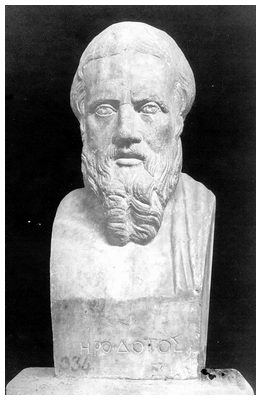December 25 (A Triple)
1 - The date celebrated as the birth of Jesus Christ.
Was Christ born on this date? No. Is Christ the son of God? Personally, I'd say no...Neither of these questions - or my opinion - is of importance, however.
What is important is the life and death of Jesus Christ, and the historical results of his life and death...Results which have been as important as any life and death in history.
336 - The first recorded celebration of Christmas on December 25th took place in Rome.
The ‘birth of Christ’ had been celebrated on various dates for over 200 years, but this is the first sanctioned by the 'Church' on the 25th.
800 - Charlemagne was crowned Emperor of the Romans.
The Pope crowned Charlemagne emperor in order to pay back the many times Charles saved him from his enemies in the Vatican, and also from his own family...Charlemagne was also a strong defender of the church, and liked to think of himself as the founder of a new Roman Empire.
There are many who consider Charlemagne as the founder of the Holy Roman Empire, and there are others who consider Otto I the founder in 962...I fall in line with those who look at Otto, because it was he who stabilized the 'Germanic nation,' and made the HRE a consistent functioning institution.
Either way, I hope you aren't foolish enough to think the Holy Roman Empire was either 'Holy,' 'Roman,' or an 'Empire.'
1. 'Holy': Hahahaha! This was a political entity if there ever was one.
2. 'Roman': Hardly. Remember Charlemagne was a Frank and Otto a Saxon (both were Germanic tribes), and the HRE was always ruled by Germans/Austrians in the future.
3. 'Empire': The HRE had a brief period as an empire thanks to it's association with the Spanish Empire (during the reign of Charles V), but other than that, it was a loose confederation of German States...Nothing more, nothing less.
1066 - William the Conqueror was crowned King William I of England.
A great day in the history of what had previously been a backward nation, and what would eventually became one of the greatest empires in world history.
1651 - The General Court of Massachusetts passed a law making the observance of Christmas a penal offense and ordered a fine of five shillings for "observing any such day as Christmas."
During this time, Christmas in the Americas resembled Mardi Gras, and the Massachusetts Puritans wanted nothing to do with such debauchery...As a result it was a long time before Christmas became a mainstream American holiday.
1776 - The Battle of Trenton: American Revolution. General George Washington and his troops crossed the Delaware River in a surprise attack against Hessian forces at Trenton, New Jersey.
A 'surprise attack' on a drunken force...It was a minor tactical battle, but an enormous strategic victory because it provided an important psychological lift for the Colonists.
1799 - Napoleon’s new constitution went into effect. It gave him, as First Consul, powers to promulgate laws, nominate senior officials, control finances and conduct negotiations with foreign powers.
A dictator was born, and France began a periods of true greatness...Though not necessarily one of 'goodness.'
1868 - President Andrew Johnson granted an unconditional pardon to all persons involved in the Southern rebellion which resulted in the Civil War.
You have to wonder if Lincoln would have done likewise. I tend to think he would have, because from the beginning of the war his intent was to keep the Union whole...This pardon went a long way towards re-establishing this wholeness - though it pissed off many in the North who felt the South should pay a much greater price then it did.
Was Christ born on this date? No. Is Christ the son of God? Personally, I'd say no...Neither of these questions - or my opinion - is of importance, however.
What is important is the life and death of Jesus Christ, and the historical results of his life and death...Results which have been as important as any life and death in history.
336 - The first recorded celebration of Christmas on December 25th took place in Rome.
The ‘birth of Christ’ had been celebrated on various dates for over 200 years, but this is the first sanctioned by the 'Church' on the 25th.
800 - Charlemagne was crowned Emperor of the Romans.
The Pope crowned Charlemagne emperor in order to pay back the many times Charles saved him from his enemies in the Vatican, and also from his own family...Charlemagne was also a strong defender of the church, and liked to think of himself as the founder of a new Roman Empire.
There are many who consider Charlemagne as the founder of the Holy Roman Empire, and there are others who consider Otto I the founder in 962...I fall in line with those who look at Otto, because it was he who stabilized the 'Germanic nation,' and made the HRE a consistent functioning institution.
Either way, I hope you aren't foolish enough to think the Holy Roman Empire was either 'Holy,' 'Roman,' or an 'Empire.'
1. 'Holy': Hahahaha! This was a political entity if there ever was one.
2. 'Roman': Hardly. Remember Charlemagne was a Frank and Otto a Saxon (both were Germanic tribes), and the HRE was always ruled by Germans/Austrians in the future.
3. 'Empire': The HRE had a brief period as an empire thanks to it's association with the Spanish Empire (during the reign of Charles V), but other than that, it was a loose confederation of German States...Nothing more, nothing less.
1066 - William the Conqueror was crowned King William I of England.
A great day in the history of what had previously been a backward nation, and what would eventually became one of the greatest empires in world history.
1651 - The General Court of Massachusetts passed a law making the observance of Christmas a penal offense and ordered a fine of five shillings for "observing any such day as Christmas."
During this time, Christmas in the Americas resembled Mardi Gras, and the Massachusetts Puritans wanted nothing to do with such debauchery...As a result it was a long time before Christmas became a mainstream American holiday.
1776 - The Battle of Trenton: American Revolution. General George Washington and his troops crossed the Delaware River in a surprise attack against Hessian forces at Trenton, New Jersey.
A 'surprise attack' on a drunken force...It was a minor tactical battle, but an enormous strategic victory because it provided an important psychological lift for the Colonists.
1799 - Napoleon’s new constitution went into effect. It gave him, as First Consul, powers to promulgate laws, nominate senior officials, control finances and conduct negotiations with foreign powers.
A dictator was born, and France began a periods of true greatness...Though not necessarily one of 'goodness.'
1868 - President Andrew Johnson granted an unconditional pardon to all persons involved in the Southern rebellion which resulted in the Civil War.
You have to wonder if Lincoln would have done likewise. I tend to think he would have, because from the beginning of the war his intent was to keep the Union whole...This pardon went a long way towards re-establishing this wholeness - though it pissed off many in the North who felt the South should pay a much greater price then it did.
Labels: Charlemagne, Christ, Christianity, Civil War, France, Germany, HRE, Napoleon, Revolutionary War, Rome, UK, US, Washington

 NOTE: The editorial content of this blog is the property of the Blog Owner...Feel free to quote from the editorial content, but please give proper credit and linking.
NOTE: The editorial content of this blog is the property of the Blog Owner...Feel free to quote from the editorial content, but please give proper credit and linking.
0 Comments:
Post a Comment
<< Home